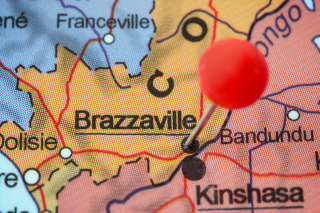
Posted by Concepcion Verdugo-Yepes[1]
On July 11, the IMF Executive Board approved a US$448.6 million arrangement under the Extended Credit Facility (ECF) for the Republic of Congo (RoC). While program negotiations were long and complex, the authorities made decisive progress in 2018 and early 2019 with fiscal consolidation and the implementation of a large package of structural reforms, including two rounds of prior actions to improve governance and transparency. Previous capacity development activities carried out by the IMF were key to identifying issues that are reflected in the RoC’s governance strategy, which was published in June 2018.
The ECF program supports the country’s efforts to restore fiscal sustainability while improving governance and protecting vulnerable groups. It focuses on: (i) fiscal consolidation and debt restructuring; (ii) strengthening human capital, including through measures that protect vulnerable groups; and (iii) structural reforms, with a strong emphasis on governance and anti-corruption measures. Additional reforms will be needed to strengthen public investment management, oil revenue management, the rule of law, the AML/CFT framework, and to operationalize the newly created Anti-Corruption Commission.
Both the Fund’s staff report and a recently published IMF Working Paper argue that oil revenue management and public investment in Congo are especially vulnerable to corruption as a result of limited transparency and accountability. Corruption has contributed to poor macro-fiscal and economic outcomes.
The report and working paper demonstrate the large economic growth dividends that could result from reducing bribes to public officials, making public investment processes transparent, reducing tax evasion, and improving oil sector governance.
Depending on the magnitude and effectiveness of the reforms adopted, growth could increase by up to 0.8 to 1.8 percent per year over the next 10 years, and debt could decline by 2.25 to 3 percent of GDP every year over the same period. Improvements in oil sector governance alone account for around 10 percent of this potential increase in growth and one-third of the reduction in public debt.
The Congolese authorities have recognized the need to radically improve governance and combat corruption. To this end, supported from the highest levels of government, they have embarked on a policy of “rupture” seeking to break with old shortcomings in this area. For example, they have taken key steps to improve governance in the oil sector, by replacing senior management, and have enacted a law which requires the annual external audit of the accounts of the state-owned oil company (SNPC). And they have committed to amend their existing anti-corruption law.
The government has also identified several measures to improve public investment management efficiency including reforms in public accounting, budget execution, and internal and external controls. They have already committed to i) publish detailed information on the level and composition of public infrastructure; ii) conduct an investment tracking survey to improve the efficiency of public investment; iii) strengthen external controls by adopting new legislation and regulations on the organization and functions of the ROC’s supreme audit institution (Cour des Comptes et Discipline Budgétaire); and iv) restructure the internal audit system and establish a mechanism to coordinate the work of the internal and external audit institutions.
While these reforms should contribute to greater fiscal transparency and better corporate governance, the benefits will depend critically on a continuing strong commitment at all levels of government and how rigorously the measures are enforced. The issues discussed in the report and working paper can guide reforms in oil dependent countries in Africa and other regions that face similar governance challenges.
[1] Senior Economist in the Fiscal Affairs Department (IMF), and fiscal economist for the Republic of Congo.
Note: The posts on the IMF PFM Blog should not be reported as representing the views of the IMF. The views expressed are those of the authors and do not necessarily represent those of the IMF or IMF policy.





